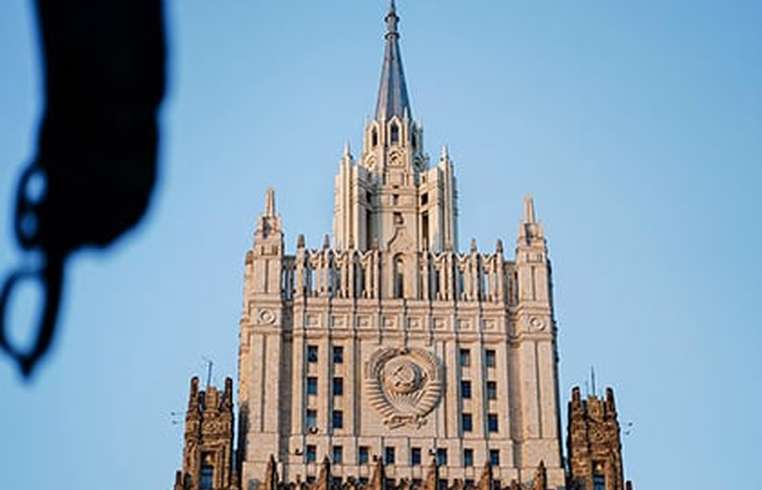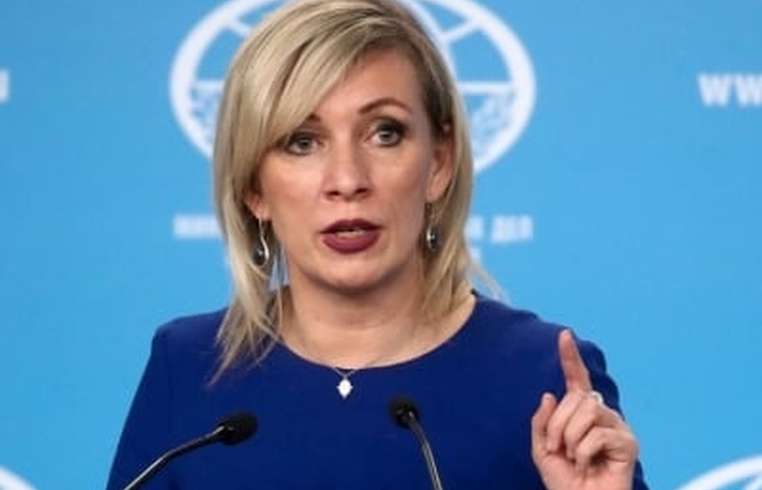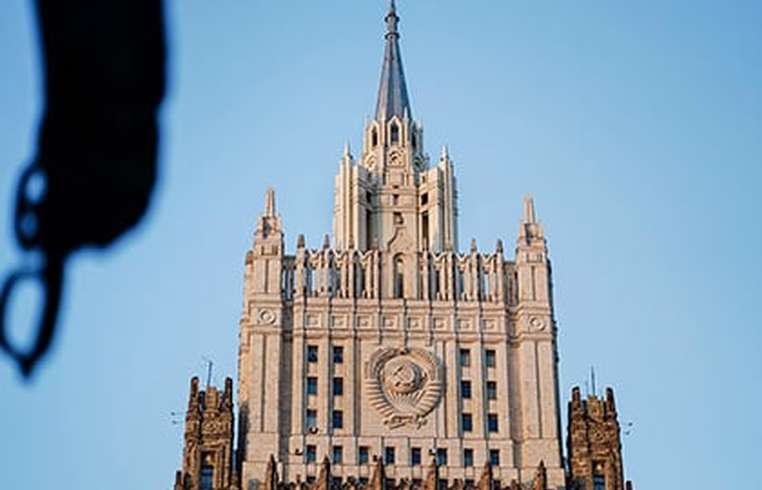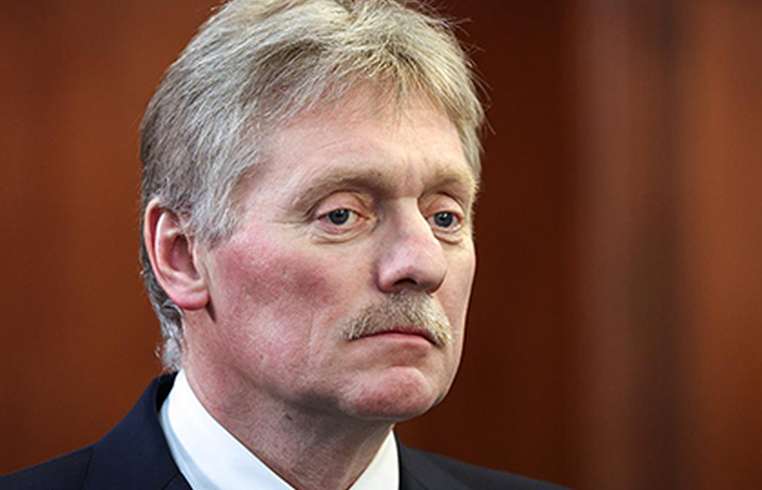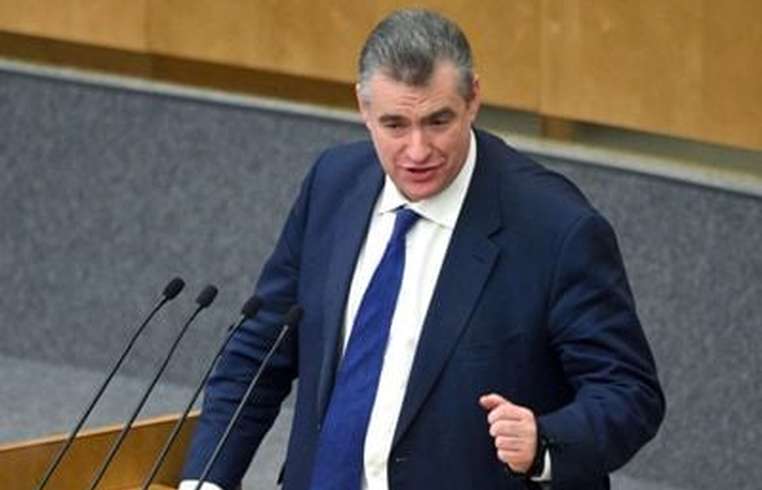
News - "The strengthening of our internal legitimacy must be expressed through the adoption of a new Constitution." — Pashinyan
Business Strategy
"The strengthening of our internal legitimacy must be expressed through the adoption of a new Constitution." — Pashinyan
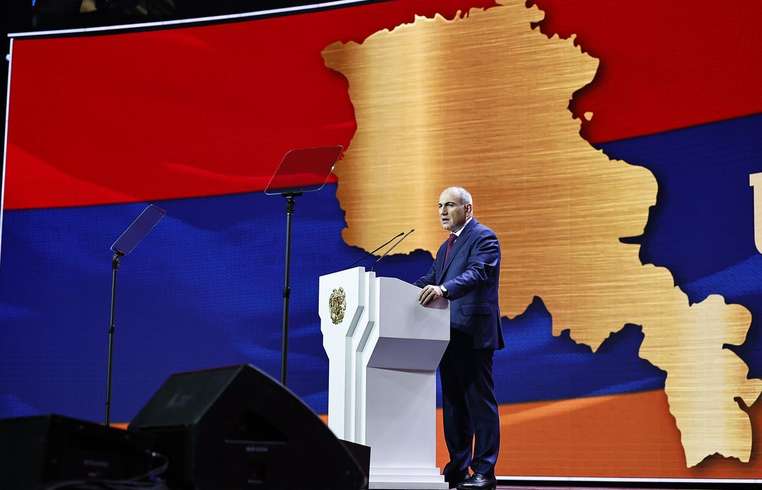
Our internal legitimacy must be expressed through the adoption of a new Constitution, says Pashinyan. 2025-11-22 18:45:00 Our internal legitimacy must be expressed through the adoption of a new Constitution, says Pashinyan. At the Karen Demirchyan Republican Stadium, the first congress of representatives of Armenia’s state bodies took place. The event was attended by President Vahagn Khachaturyan, Prime Minister Nikol Pashinyan, Speaker of the National Assembly Alen Simonyan, President of the Constitutional Court Arman Dilanyan, and representatives from the legislative, executive, judicial, law enforcement, territorial administration and local self-government sectors, independent and autonomous bodies, special services, servicemen, police, rescuers, employees of educational, cultural, and health institutions, students, pupils, and more than 7,000 people. This was reported by the Government’s press service. The Prime Minister delivered a speech titled “The Formula for the Longevity of the State,” in which, among other things, he noted: Honorable President of the Republic, Honorable Speaker of the National Assembly, Honorable President of the Constitutional Court, extremely esteemed representatives of the legislative and executive authorities, the judiciary, law enforcement, territorial administration and local self-government, independent and autonomous bodies, and special services, dear servicemen, police officers, rescuers, respected workers of educational, cultural, and health institutions, dear students and pupils, dear people, This Congress of state bodies is the first in Armenia’s history. The congress, in itself, expresses a redefinition of the role and significance of the state, Armenia, and serves as a measure aimed at stressing not only the importance but the vital necessity of the state for our people. Public perception of the state largely depends on how state workers are perceived by the public, because through us the citizen interacts with his state, and the relationship between the state and the citizen—the citizen’s relationship with us and with our community—depends on each of us and our collective. In this context, all state workers form a community. Despite the separation of powers, state workers are interconnected by shared responsibility, and their collective work determines the quality of the state, the quality of life for citizens and residents, and the quality of the state–citizen relationship. Therefore, although all state organs have functional and territorial distinctions, they should act as one large enterprise with a certain rhythm, sensitivity, and system of harmony, just as an independent but harmoniously coordinated orchestra, with wind, string, and percussion sections, where every instrument is included, and where each musician, though independent, is connected to the others and, ultimately, to the orchestra. So what is the macro framework of the work of Armenia’s state bodies with which we must engage and against which we must regulate our daily micro-actions? That macro framework is to ensure the longevity of the state. Our aim is that our state, Armenia as such, exist continuously for 50 years, 100 years, 150 years, 500 years, 1000 years and beyond. I understand, of course, that if our thinking is framed by 50–100 year horizons, that can still be seen as a practical issue; a longer planning horizon might raise questions in itself. But if a thousand-year state’s vision cannot form daily micro-actions, it can and should form the daily routine and the subconscious. This factor and environment are what can make the state and its people develop a national mentality. The vision of a thousand-year state is a tool for deeply and fully acknowledging today’s value as the crucial moment for the coming thousand years, because today is the most important moment, without which the coming thousand years cannot exist. The future cannot exist without today, hence the future is today. Psychology, thinking, but also practical tools for realization must exist in daily practice. So what are the practical tools by which we must open the way for implementing our thousand-year plan? Honorable President of the Republic, Honorable President of the National Assembly, honorable President of the Constitutional Court, esteemed representatives of state bodies, respected participants, dear people, Legitimacy must be our starting point in our relations. This applies to both external and internal relations, politics and decisions. Legitimacy is the infrastructure that not only paves the way for relations between states, between people, and between the state and the people, but also provides security mechanisms. Legitimacy, therefore, is a crucial instrument for ensuring security—for both individuals and the state—and operating on legitimacy not only protects but also substantially increases levels of security and safety. Legitimacy is one of the most important factors that must serve the state’s longevity agenda. Therefore, building and strengthening legitimacy in Armenia should be a continuous public agenda, and our legitimacy must be integrated with global trends in legitimacy, international law, and the evolution of global legitimacy. Our external legitimacy arises from the United Nations Charter and the Alma-Ata Declaration of 1991. Internal legitimacy, in turn, has its own source: the founding people of the state—the Armenian people and their free expression of will. Esteemed representatives of state bodies, dear people, What I am saying may seem like ordinary text. For lawyers and long-serving public employees it may be a professional truth. But allow me to insist that the misalignment of the cornerstones of legitimacy and the failure to build the state on this consciousness is the source of all our problems, and thus the essential prerequisite for their solutions. Legitimacy by itself does not solve all problems; it is an infrastructure and a set of formulas for solving problems. For example, consider how legitimacy relates to the resolution of external security issues. For many years we faced significant constraints in military-technical relations with various countries. Many countries simply refused to sell us weapons and equipment, and the decisive reason was their belief that we could use these arms outside Armenia’s internationally recognized territory. Now we do not have such restrictions, and the reason is that we place the Alma-Ata Declaration and the defense of Armenia’s internationally recognized territory at the center of all foreign relations—legitimacy. I want to emphasize again: legitimacy does not guarantee security, but it raises security levels and reduces vulnerability and opens access to many modern security tools and technologies. To put it more simply: legitimacy reduces the likelihood of war, but at the same time it enables a significant, even exponential, increase in defensive capabilities, because no one can doubt a state’s right to defend its internationally recognized territorial integrity. This understanding also expands the possibilities for arming and access to defense technologies. This same logic applies to other areas of foreign relations as well as to domestic policy. This is a fundamental and vital part of state life and civic hygiene. With this in mind, I consider it essential to strengthen our internal legitimacy, which should be expressed through the adoption of a new constitution. Why is this agenda important? Because of legitimacy—the sense that Armenian citizens feel like strangers to the legal order established in Armenia. Laws and regulations are often perceived as an inconvenience or a barrier, something foreign and alien, rather than a vital necessity. Undoubtedly, sometimes the quality of regulations or laws is poor, but the real issue is not that; it is the estrangement with which the legal order is treated within us—the sense that the law does not arise from the people themselves, that the people do not feel themselves as the founders of that order. I have discussed the social-psychological and historical layers of this topic in my lectures on the ideology of Real Armenia, and my conclusion is that historically our understanding and experience is that the rule of law has been imposed from outside for us to live by, and this has indeed been the case for much of the last 500 years when our living rules were defined by foreign states over whose jurisdiction we happened to be, not by rightful citizens. Thus, the sense of estrangement from the rule of law and from the state threatens our internal security and longevity and is seriously underestimated or even invisible to us. It may seem that this sentiment should have been overcome with the founding of our independent state, but the fact remains that it has not been overcome, and it is evident in the daily work of civil servants. What is the reason after 34 years of independence? There is no doubt the reason is that, in 1995 and thereafter, Armenian citizens did not feel that the constitutionally established legal order followed from them, that they themselves are the source of that legal order, because the belief that the results of the 1995 constitutional referenda and subsequent referenda were questionable has been significantly stronger than public trust in the official results. As a result, the rules of life for citizens were again determined by others, not by the citizens themselves. The Constitution, esteemed attendees, is the agreement of the citizens about the rules for living, about the rules of citizen–citizen and citizen–state relationships. And those rules will work effectively only if they are truly accepted and affirmed by the people, i.e., by the sovereign’s freely expressed will. That is why an organic constitutional process whose outcome will be the people’s free adoption of a new Constitution is extremely important for our state’s longevity and security agenda. It is essential for strengthening the emotional bond between the state and the citizen, for creating an emotional link between the legal order and the citizen, and today that bond is either weak or nonexistent precisely because the citizen does not feel that the legal order organically relates to him, that he as sovereign gives birth to that order. Critics will say that most citizens do not read the Constitution’s draft or study its contents. But allow me to point out that a truly democratic constitutional process—where every citizen fights for every vote and every voice—will give citizens the most information and understanding about the Constitution’s draft, its subtleties and features. To ensure the organic and emotional bond between the citizen and the legal order, it is not necessary for a citizen to master all the nuances of the constitutional process and content to an expert level. A person does not master all the biological subtleties involved in bringing a child into the world, but there is no stronger emotional bond and sense of responsibility toward one’s own child than a parent’s. Our political task is to cultivate the same emotional bond between the state and its founding source, the people, and to establish the legitimacy’s foundations and the corresponding sense of responsibility, which will be possible only through the people’s free adoption of a new Constitution. Why a new Constitution and not constitutional amendments? Because for Armenia this represents new political content, a new consciousness, a new political and state doctrine; and as the New Testament says, new wine in new wineskins. This new doctrine tells the citizen: love your state as you love yourself. But a slogan will remain only a slogan unless there is an organic bond between the legal order and the citizen—a bond created through a biological-political process that gives birth to that bond. This is one of the central aims of adopting a new Constitution. The new Constitution should also solve another engineering problem—let me call it an engineering challenge: it should provide the aerodynamics, again a conditional term, necessary for the state’s long-term operation; and the aerodynamics can suffer if our vision of what we want—whether a car, an airplane, or a spacecraft—is not clear and unified. That is why it is important that the adoption of the new Constitution by referendum take place after the 2026 parliamentary elections. This will allow all forces to present their positions on the Constitution’s agenda to the people during the campaign, and the position of the political majority that has earned the people’s trust will be decisive in shaping the final draft of the Constitution. Honorable President of the Republic, Honorable Speaker of the National Assembly, Honorable President of the Constitutional Court, esteemed representatives of state bodies, dear participants, dear people, The state is our people’s greatest achievement, its greatest and incomparable value. The state, its interests and longevity must become the highest consciousness, the national ideology. The state is our identity, and our identity is our state; this is not merely a slogan but a central understanding of our people’s history and origins. The state, yes, is an end in itself. A supreme end. But any end is also a means to a higher end. This end, by the way, is a political choice, and today our choice is clear: Armenia’s state is a means to secure the freedom, security, well-being, and happiness of its citizens within its internationally recognized sovereign territory. We must focus on three concepts—state, identity, happiness. These three concepts are simultaneously goals and means; they operate in a cyclic or spiral logic. The state is a supreme goal and a means for preserving and developing our identity; our state and our identity are goals and, at the same time, means to ensure our freedom, well-being, and security; happiness anchored in state and identity is a higher end and at the same time a means to another end—the preservation and development of our identity and the advancement and longevity of our state, to serve our state’s interests more effectively. Dear attendees, dear people, Discussions of the theoretical foundations of the state, its theoretical and ideological bases, are not ordinary matters in our country, and today I also want to note this as a challenge that must be solved at the state level. Discussions of the state’s theoretical and ideological foundations must continue in public, political, and state life, because without them it is impossible to remain competitive in a constantly changing and rapidly evolving world. But theory is not merely a prologue; it must guide all our practical decisions. And to become such a guide, theories must be discussed, interpreted, understood, clarified, and turned into implementable concrete projects and programs, into daily life procedures, so that today we can live for the future and not for the past. The human being is the supreme value, and the state must serve the human being. This is an axiom that has echoed among us for thousands of years and continues to do so. This thesis or slogan is not up for debate and cannot be questioned. The issue lies elsewhere: how should the state serve the human being, and how should the person, as the supreme value, be expressed? Our answer is captured in the slogan that the state must empower the person, and the person must empower the state. This, in turn, requires further interpretation: how should the state empower the person, and how should the person empower the state? We believe the only reliable way to empower the person is education. Education at all levels and education as an ongoing process. Education that begins in kindergarten, continues through school, college, and/or university, with postgraduate studies, retraining, non-formal education, and ongoing measures to increase competitiveness in the labor market. Education, which starts in kindergarten, continues through school, college, and/or university, with postgraduate education, retraining, non-formal education, and ongoing efforts to boost competitiveness in the labor market. This is not repetition for emphasis; if in the past we had a strategy for education among other strategies and if education became a priority among them, now education is the strategy for all sectors or education is the strategy of all sectors. Our strategy for overcoming poverty is education, because today the fundamental cause of poverty in Armenia is the low level of competitiveness of people in the labor market, which is tied to unequal access to education or to gaps in education for those in poverty. That is why the program “300 schools, 500 kindergartens” is strategically significant. It is the program’s backbone because it determines not only the fate of every child but also the fate of our state. We are now concluding the “300 schools, 500 kindergartens” program and have already begun the next program—300 more schools and kindergartens, building 50 schools out of the next 300, with the rest in progress. Kindergarten is not only about introducing children to pre-school education; it also enables young mothers to pursue education and work. Given this target group, we must develop colleges, dual and non-formal education systems in the regions, as much as possible encouraging private sector participation in delivering educational programs. The system of universal educational costs in the form of social credits also serves this goal, and we must continue to improve its effectiveness. The culmination of this strategy is the Academic City, which will undoubtedly be a powerful magnet for Armenia’s future development. A person is strong through education, and there is no other path to empower a person, and therefore the state’s strategy to empower the person is education. And how should a person empower the state? Education acquired with state support should provide added value, as economists like to say. The education obtained with state support should be applied to create added value. The education of a future entrepreneur should become economic growth and rising state revenues; the education of future teachers and other education workers should raise the quality of the education system; the education of a future scientist should lead to scientific achievement and innovation; the education of a future healthcare worker should lead to more efficient healthcare; the education of a future public official should lead to better governance and a more favorable economic environment, and so on. The list could go on. The connection between future lawyers and justice, the education of future police officers in relation to law and public order and the fight against crime, and so on— It is also crucial that state bodies specify their target for their work. What exactly is that target? In other words, what do state bodies work for? The systemic target of state bodies’ work is the public interest, and the public interest, as I have repeatedly said, is economic development. Why should Armenia’s public interest be economic development? Because man is the highest value, and the realization of that highest value can occur only in an environment of economic development. It is impossible to ensure human well-being without economic development, impossible to ensure human security without economic development, impossible to ensure human health without economic development, impossible to ensure human education without economic development, impossible to ensure human rights without economic development, impossible to ensure human freedom without economic development. Of course, this text can be read in reverse as well, but the essence does not change. For example, external security is an economic factor. To ensure a country’s security means ensuring the normal possibility of economic activity within the country, which in turn increases state revenues, which in turn raises the level of security, which in turn expands the opportunities for economic activity. Note that external security includes not only the army but also the diplomatic service, the National Security Service, the Foreign Intelligence Service, and other institutions. Security means not only external but also internal security, starting with the fight against crime; the criminal subculture is, incidentally, a significant obstacle to economic development. The rule of law, energy, financial-banking system, roads, agriculture, health care, and so on—all of these are security factors. The person, his rights, and economic development form part of a circular process whose starting point is hard to specify. But the state’s central task is to ensure a smoother and more efficient progression of that circle. This awareness is essential for our daily work and its effectiveness. In this context I want to emphasize two features. Establishing an organic link between the rule of law and the sovereign people will help state bodies see every citizen as a direct employer; in other words, we must increasingly regard the citizen as an employer because that is how it is. The legitimacy strategy will help establish a fairer state, because the safest and most reliable mechanism for balancing equal employers—the citizens—is legitimacy, i.e., legality. And education will help us enact laws and regulations that serve the human being and do not torment him, that legality becomes rational, serves life and development, and not the opposite. Incidentally, we often lack the courage to admit that one of the key obstacles to development is the gaps in our education system. There are many cases where state bodies sincerely want to do good but do not know how to do it. And this is captured by the once-quoted remark of the late Russian Prime Minister Chernenko: “We wanted the best, but it turned out as it always does.” This is a very serious problem. It begins with the desire of people in the public sector to be part of reform and to contribute to state development, to serve the public and the state. But initiative and creativity in the public sector often fade quickly, because public offices do not always have motivational systems for learning, for self-improvement, and public offices can become environments for merely adapting, treading water, doing nothing. And this is also because it increasingly becomes difficult for public bodies to compete with the private sector for the best employees; many high-quality public-sector workers leave for the private sector and consider doing so. We must be frank: one of the reasons is that pay in the public sector is low compared to the private sector. Indeed, in several public bodies we have implemented partial solutions, but overall the problem persists. I must openly acknowledge that the issue of raising pay in the public sector is a political problem with two sides. The first is that we all understand the need to increase the competitiveness of public-sector employment. The other side is that political leadership shies away from raising pay in the public sector, mainly due to political shaming, a new term describing fear of political embarrassment. Because in such cases the public’s immediate reaction is: with so many social problems in the country, you want to raise the salaries of government employees? This is a self-reinforcing loop, because solving social, economic, and other problems depends on the effectiveness of public bodies and officials. The effectiveness of public bodies depends on their employees’ education, their desire to know more, to master more, to take on more responsibility, which in turn depends on motivational systems, including salaries and other social guarantees. This also affects how many high-quality professionals choose to work in public service. And I’m speaking about both current top professionals and those who could come to work. Let us be frank: who suffers most from low pay in the public sector? Undoubtedly, the citizen. Because of the described environment, the citizen makes poor decisions, even poorly implements good decisions, faces corruption risks, and disdain. In connection with all this, ideological work to strengthen the moral incentives of public workers is possible and necessary, but it will be ineffective if not combined with motivational systems, and this nuance must be faced not only by political power but by the public at large. We will continue to move forward by increasing the attractiveness of public service and by expanding public-service attractiveness, because this is an essential part of our state-centered strategy. Soon we will adopt the Pilot Program for Performance-Based Evaluation and Incentives, aimed at testing a pay-for-performance system. A key feature of this program is that a portion of the additional remuneration will be directed toward improving public employees’ education, which will inevitably raise the quality of the state bodies’ work. As part of public administration reforms, we will consistently strive to create in public bodies an inclusive, competitive, excellence-promoting working environment, and the implementation of the above system serves exactly this goal. I also want to note with pride that as a result of reforms we have implemented, today in Armenia a teacher who is also a public servant can earn 700,000 drams, and a regular soldier who is also a public servant can earn 700,000 drams. In response to this, some teachers deny it, saying I am a teacher and I earn only 75,000. But this concerns education and voluntary certification; we are not saying all teachers earn 700,000 drams, we are saying that a teacher can earn 700,000 drams, and we say this because such teachers exist in Armenia today. The aim of this discourse and policy is precisely to introduce the right personal incentives so that teachers, soldiers, and public workers are motivated to improve themselves and reach higher levels of training and professionalism. Some people look for negative connotations in our strong focus on education, trying to portray us as viewing our citizens as illiterate. Like in any country, Armenia has illiteracy. But like in any country, Armenia has thousands, tens of thousands, or hundreds of thousands of educated people; no one knows everything. There is no one who knows everything, and therefore everyone has something to know, and there should be motivation to enable as many people as possible to do so. This is the government’s responsibility. Against this backdrop, I find it important to return to the statement that the person is the highest value. How is this understood on average by Armenians? Statistically, this is understood as: the person is the highest value, and the state must take care of the person. This is correct, and as I said, there is no objection to this. But if the person is the highest value for the state, that same person must also be the highest value for himself. If the state must take care of the person, the person must also take care of himself. Otherwise it is hard to imagine how the state will care for the person if the person does not take care of himself—through a healthy and active lifestyle, through adherence to the law, through relationships with neighbors and the environment, and ultimately through his own commitment to pursue education. I also acknowledge that this is a mindset we must cultivate from kindergarten, hence the “300 Schools, 500 Kindergartens” program as the starting point. But we, as adults, cannot go back and begin to instill a mindset in the kindergartens we have built. Therefore, today we must sow this mindset within ourselves so that we can sow it in our children. And this responsibility primarily concerns state workers, because they in any case set an example for our children and not only for children. I want to emphasize that statehood, citizenship, and belonging are also educational topics, and I am not confident that in our educational plans and practices we have reached the necessary level in teaching these topics. Our education system should direct students’ and trainees’ outlook toward Armenia’s legitimacy, sovereignty and independence, and strengthening its state interests. This agenda should, in general, become the foundation of public solidarity and unity, something that we have discussed for so long with so little result in Armenia. Why has Armenia failed to cultivate public solidarity and unity? Because we have not recognized that public solidarity also requires aerodynamic dynamics, so to speak. Opposing and mutually exclusive views about the state’s long-term vision cannot form the basis for public solidarity. Public solidarity can be formed when there is a common understanding of the state’s long-term vision, and debate should concern the paths and methods of implementing that strategy or the most effective application of those methods. And we must base our public solidarity on the state’s ultimate value, its longevity, anchored in legitimacy and education, and on humanity’s ultimate value. Honorable President of the Republic, Honorable Speaker of the National Assembly, Honorable President of the Constitutional Court, esteemed representatives of the legislative, executive, judicial, law enforcement, territorial administration and local self-government, independent and autonomous bodies, special services, dear servicemen, police, rescuers, educators, cultural workers, health workers, dear students and pupils, dear people, your assembly...


